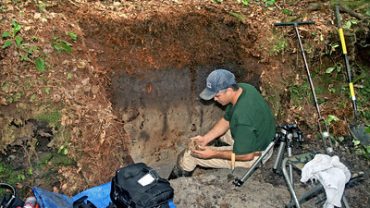Soil Science
Soil scientists study and manage land and water resources to protect the environment and enhance agricultural productivity. The online Master of Soil Science is a non-thesis degree that provides professionals in environmental and agricultural fields with an in-depth understanding of soil sciences. Students will be well prepared across the breadth of soil science in areas of soil physics, chemistry, fertility, microbiology, and classification. This degree can also be useful for those who are interested in licensure or certification as professional soil scientists.
Eligibility
Students interested in pursuing the Master of Soil Science degree should have an undergraduate degree from an accredited institution in soil science, agronomy, environmental science, or in the biological, chemical, and physical sciences. The student should have coursework in biology, chemistry, physics, and a semester of basic calculus. Students who do not meet all of these requirements will be considered on a case by case basis. A minimum undergraduate degree GPA of 3.0 is required. Students who have no undergraduate course work in soil science will be required to complete SSC 200 as a prerequisite.
Plan of Study
The Master of Soil Science degree can be completed entirely online. The degree requires a minimum of 30 credit hours of approved coursework. In addition to required courses, students will work with a faculty advisor to select appropriate electives to meet the needs of the student.
Career Prospects
Graduate education opportunities in Soil Science at NC State prepare students for careers with public and private organizations in soil, agricultural, environmental, and natural resource sciences. Our graduates find employment opportunities with private sector firms, government organizations, academia, extension, consulting firms, and non-governmental organizations. Many graduates are also entrepreneurs who run their own private consulting firms. Soil science is an important component of many fields of work and our graduates find opportunities in many different types of careers.

